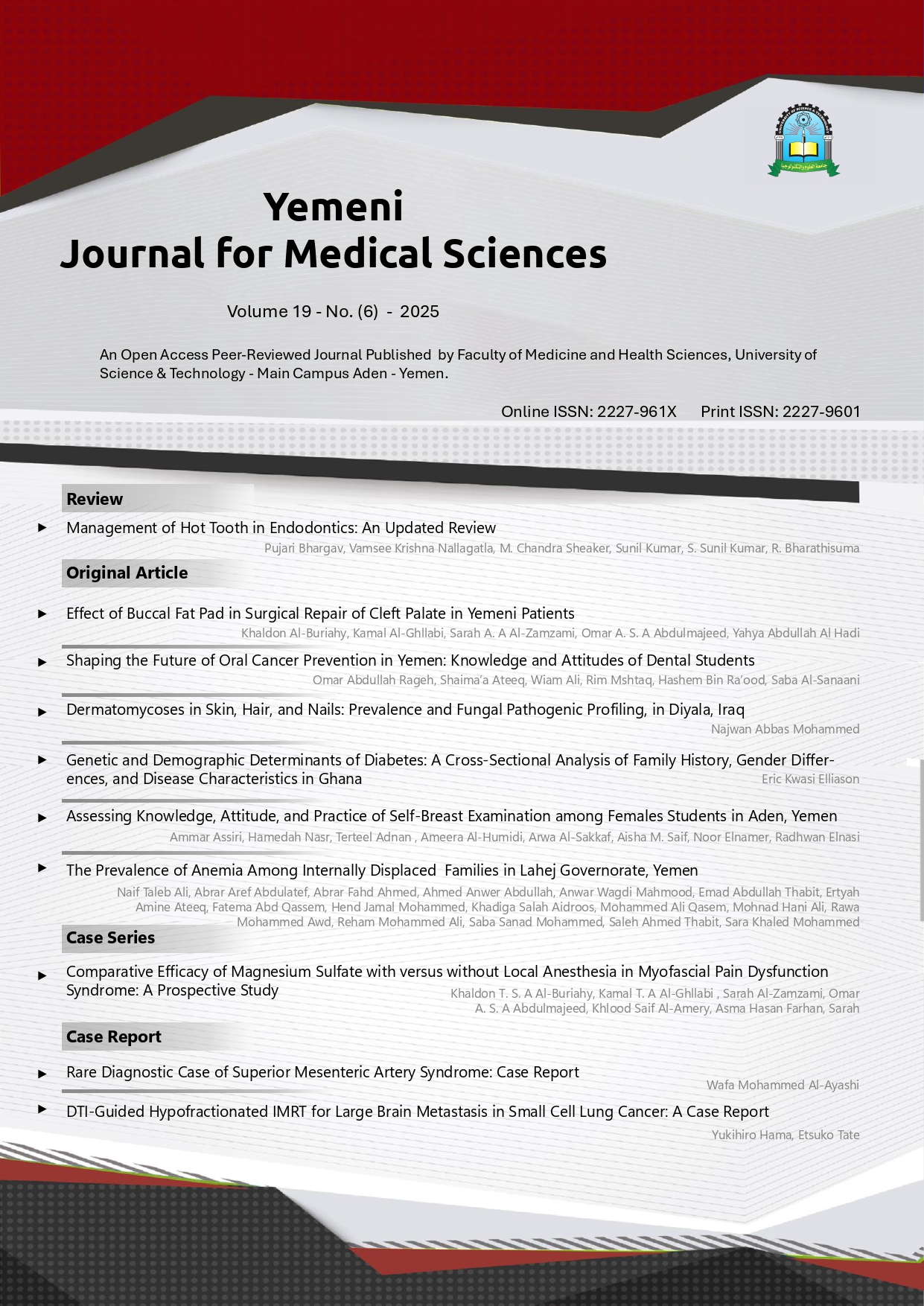Shaping the Future of Oral Cancer Prevention in Yemen: Knowledge and Attitudes of Dental Students
##plugins.themes.bootstrap3.article.main##
Abstract
Background: Oral cancer is a significant public health issue globally, with over 300,000 new cases diagnosed annually. In Yemen, oral cancer is particularly prevalent, exacerbated by cultural practices such as the consumption of shammah (smokeless tobacco) and qat (a stimulant).
Objective: This study aimed to assess the knowledge and attitudes of Yemeni dental students concerning oral cancer, with the aim of identifying knowledge gaps and proposing strategies to improve oral cancer care in Yemen.
Method: A cross-sectional multicenter survey was conducted among dental students from multiple universities across Yemen. A structured questionnaire was designed to assess participants’ knowledge of oral cancer risk factors, clinical manifestations, diagnostic methods, treatment options, and their attitudes toward patient education and prevention. A total of 247 dental students participated in the study. Descriptive statistics were used to analyze demographic data and survey responses, while chi-square tests assessed associations between demographic factors and knowledge levels.
Results: The majority of participants (93.1%) were aged between 20 and 29 years, and 64.8% were female. A significant knowledge gap was observed, with 84.2% of respondents unable to accurately identify oral cancer risk factors and 84.8% failing to recognize its clinical symptoms. Although 64% of participants agreed on the importance of annual screenings, only 22.3% demonstrated knowledge of diagnostic tools. Younger students with 0–5 years of experience exhibited better knowledge of risk factors and treatment options than their more experienced counterparts. Gender differences were marginal, with men showing slightly higher awareness of risk factors (p=0.022). A strong consensus (87.9%) emerged regarding the importance of patient education and counseling in oral cancer prevention.
Conclusion: This study highlights critical gaps in the knowledge and awareness of oral cancer among Yemeni dental students, particularly in risk factors, clinical signs, and diagnostic methods. While there is a clear recognition of the importance of patient education, the limited knowledge of diagnostic tools and clinical features suggests the need for enhanced training and continuous education.
##plugins.themes.bootstrap3.article.details##
Oral Cancer, Dental Students, Knowledge Gaps, Prevention, Early Detection, Yemen, Risk Factors, Patient Education, Screening, Diagnostic Methods

This work is licensed under a Creative Commons Attribution 4.0 International License.
YJMS publishes Open Access articles under the Creative Commons Attribution (CC BY) license. If author(s) submit their manuscript for consideration by YJMS, they agree to have the CC BY license applied to their work, which means that it may be reused in any form provided that the author(s) and the journal are properly cited. Under this license, author(s) also preserve the right of reusing the content of their manuscript provided that they cite the YJMS.








